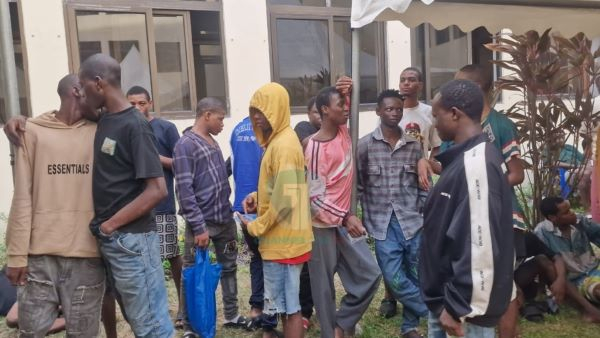THE TRUMP administration is targeting immigrant communities and significantly increasing the operations of the federal Immigration and Customs Enforcement (ICE) agency, including contributing to mass deportations. This is happening right here in New Hampshire. Now the administration is attempting to deputize state and local law enforcement to conduct federal immigration enforcement in our state to expand arrests, detentions, and deportations.
Even though this program — called the 287(g) program — has led to well-documented abuses, the administration has revived it to enable local and state law enforcement to challenge people on the street about their immigration status — and possibly arrest them for deportation. This past week, we along with civil rights and immigration leaders with the N.H.

Immigrants’ Rights Network and ACLU of New Hampshire authored an open letter to all law enforcement heads in the state warning of the risks of engaging in the 287(g) program and urging them to not sign on to it. The 287(g) program — named after a section of the 1996 Immigration and Nationality Act — is relatively simple in language yet terribly life-altering in practice: it allows local law enforcement agencies to carry out certain duties normally reserved for federal immigration agents, such as investigating a person’s immigration status and holding people for transfer to ICE detention. The result is that even the most minor interactions with a police officer can lead to detention, deportation, job loss, and separation from loved ones — disproportionately impacting Black and Brown immigrants.
The 287(g) program’s Task Force Model that the Trump administration recently revived was dropped in 2012 after abuses, including racial profiling, that cost tens of millions in lawsuits. This discontinuation followed a 2011 Justice Department investigation that found widespread racial profiling and other discrimination against Latinos in Arizona. In 2024, the New Hampshire legislature passed and Governor Chris Sununu signed a bill banning racial profiling in law enforcement in our state.
A report published by the ACLU in April 2022 found dozens of sheriff partners in the 287(g) program had records of racism and violence. ACLU analysis revealed extensive civil rights violations and other abuses, particularly racial profiling. The report highlights that xenophobia is at the very heart of the 287(g) program, which expanded five-fold under the first Trump administration and now the administration seeks to expand it exponentially.
One 2018 case documented in the report is that of Sara Medrano, who was driving her grandkids to go shopping in Maryland when she was pulled over and nearly separated from her family for good. The reason given for the traffic stop was a burnt-out taillight. Medrano was held for nearly an hour due to an “immigration problem” until finally a deputy returned to her car with a written warning for her taillight and let her go — a clear pretextual traffic stop violating Sara’s rights and likely driven by racial profiling.
The officer had no basis to arrest Medrano and immigration authorities were not available to take custody of her. And, as it turns out, the taillight was working just fine. Unlike many, Sara remained safely with her family.
Despite the 287(g) program’s history of abuse and the recent prohibition of racial profiling by New Hampshire law enforcement, a growing number of state law enforcement agencies — Belknap County Sheriff’s Office, Grafton County Sheriff’s Office, and the Colebrook, Gorham, Ossipee, Pittsburg, and Troy police departments — have accepted the Trump administration’s mass deportation plans and are approved to participate in the 287(g) program’s Task Force Model. New Hampshire State Police and Candia Police Department also have expressed interest in joining. At the same time, at least three major police departments and other smaller departments throughout the state have chosen to heed their community’s requests and declined to participate in a program that detracts from their ability to focus on local needs and respond to calls.
To ensure public safety, all members of the public — regardless of immigration status — must be able to rely on and trust local emergency personnel. Joining this program is an unnecessary violation of trust, ignores community needs, and comes at local taxpayer expense, while producing no measurable benefits. New Hampshire communities deserve better.
.
Politics

Grace Kindeke & Eva Castillo: If police act like immigration agents our communities lose

THE TRUMP administration is targeting immigrant communities and significantly increasing the operations of the federal Immigration and Customs Enforcement (ICE) agency, including contributing to mass deportations. This is happening right here in New Hampshire.















